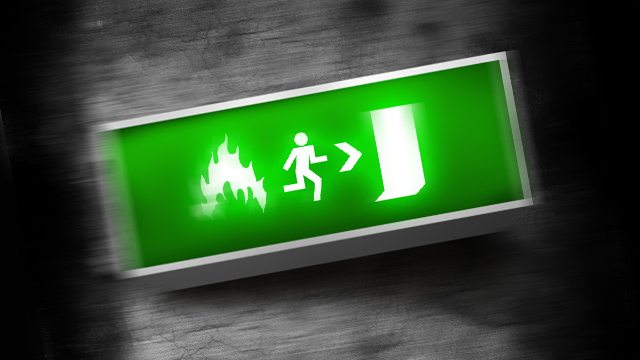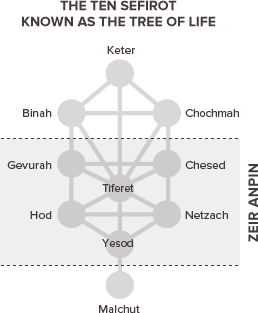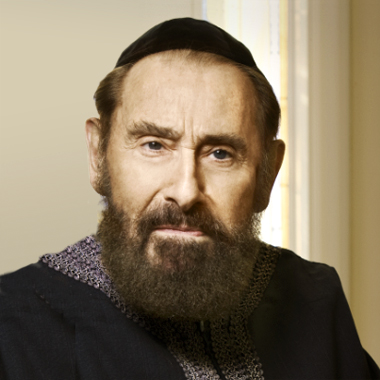
The portion of Vayikra is the beginning of Leviticus, the third book of the Bible. In the first verse, the word “vayikra” contains a small letter Alef.
We know that Alef is the first letter of the Hebrew alphabet; however the Alef was not used as the instrument for the Creation of the world. God, in His infinite wisdom, knew that in the future there would ultimately be chaos in this world—and as such, the letter Alef, being so pure, could not be the channel for Creation and the chaos that would eventually occur. Instead, the channel for Creation would be the letter Bet, because Bet is “brachah,” which means “blessing.”
Kabbalists teach that large letters in the Torah Scroll connect us to the level of Binah, yet because the Alef in the word vayikra was not written as a large letter, we cannot be nourished from the energy of Binah through it. Why is this? Only the Zohar gives us the understanding of the small Alef, which then tells us what the portion of Vayikra is all about.
The Zohar explains the depth of this one word, vayikra, which means “and he called.” It says “Vayikra Moshe vayidaber HaShem,” which means, “He called Moses and then God spoke." The Bible does not say God called him and then spoke to him; it is separated—this is the hint of the small Alef.
Rav Shimon bar Yochai, the author of the Zohar, teaches us that the Zohar processes the whole Bible as a code for something greater and loftier. The Bible is about the battle against our adversary, the Satan.
The two letters that are concealed in the word vayikra, “and he called”—the Kuf and the Resh—mean kar or “cold,” like a body that is cold when it is dead. Why is it that a dead body goes cold? Is it because it is cold outside? No. If a person dies on the equator, does the body get warm then? No, the body still goes cold.
The Zohar refers to “cold” as the Satan; in a dead body all that remains is the energy of Satan because the soul has left. This is why it is cold. What do we mean when we say that people are cold to each other? It means that we forget to love our neighbors as ourselves, forget to treat others with human dignity. The expression of the soul is gone. Cold people are alive, but it is as if their soul is gone; they live like they have no soul.
 As we know from the Zohar, Satan can be controlled through the channel of the dimension of Zeir Anpin. Rav Shimon explains that the Alef controls Malchut, which is the dimension of Satan’s playing field. The small Alef connects us to the Malchut, where chaos exists. With the word vayikra, which means “to call upon,” we “call upon” Zeir Anpin, which is Moses. It is written in the Zohar that Moses exists in every generation and that we can call upon him.
As we know from the Zohar, Satan can be controlled through the channel of the dimension of Zeir Anpin. Rav Shimon explains that the Alef controls Malchut, which is the dimension of Satan’s playing field. The small Alef connects us to the Malchut, where chaos exists. With the word vayikra, which means “to call upon,” we “call upon” Zeir Anpin, which is Moses. It is written in the Zohar that Moses exists in every generation and that we can call upon him.
In general, Vayikra is filled with sacrifices, but what does that have to do with the word vayikra and the small Alef? We do not have sacrifices today, but we learn in The Kabbalah Centre that sacrifice is to remove ourselves from Satan’s playing field. When we are in Satan’s playing field we are robotic.
The Zohar teaches that Zeir Anpin can remove chaos, but we must first make the sacrifice. We must sacrifice the Satan consciousness. Remember, the Satan is within us, and we live under the direction of its force as long as we do not follow the rule of the Light—to treat our neighbor with human dignity. But sometimes we refuse to surrender the ego, and so we stay in Satan’s playing field.
We hold onto our ego for stupid things. We can be reactive and lose control. But only when we behave like God can we be an entity outside of the Satan’s control. When we act like the Satan, we are in his playing field. When we act like God and then ask God for something we need, God gives it to us. Why would we not want to give to ourselves? To act like God, we have to share.
When we act with concern about our own selfish things, then God will do the same. When we are controlled by the Satan, it is expected that we will not give charity or smile at people. When we are living in Satan’s playing field we are making judgments about other people, we are controlled, and we have no choice. To remove chaos from our lives we have to give up the Satan. We have to act like the Light, like God. We have to be in God’s playing field.
Read the full Zohar portion of Vayikra and connect to the energy of the week here.


 As we know from the Zohar, Satan can be controlled through the channel of the dimension of Zeir Anpin. Rav Shimon explains that the Alef controls Malchut, which is the dimension of Satan’s playing field. The small Alef connects us to the Malchut, where chaos exists. With the word vayikra, which means “to call upon,” we “call upon” Zeir Anpin, which is Moses. It is written in the Zohar that Moses exists in every generation and that we can call upon him.
As we know from the Zohar, Satan can be controlled through the channel of the dimension of Zeir Anpin. Rav Shimon explains that the Alef controls Malchut, which is the dimension of Satan’s playing field. The small Alef connects us to the Malchut, where chaos exists. With the word vayikra, which means “to call upon,” we “call upon” Zeir Anpin, which is Moses. It is written in the Zohar that Moses exists in every generation and that we can call upon him.